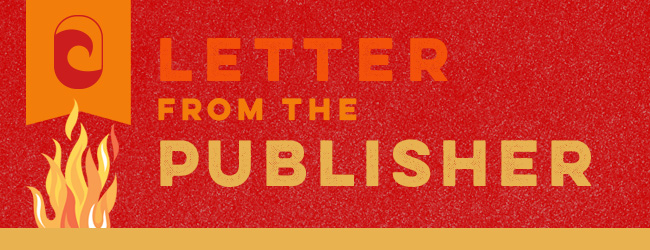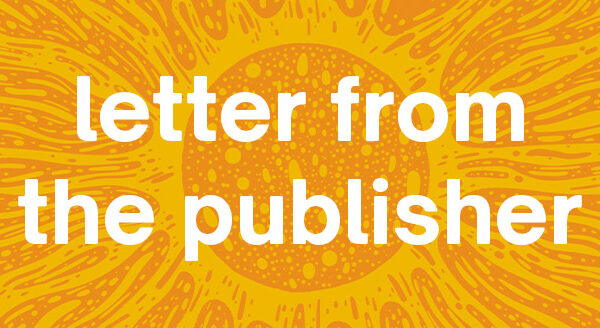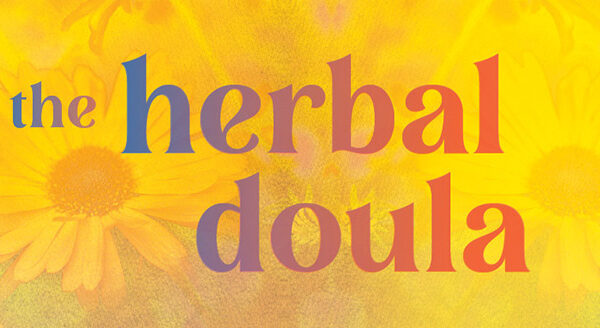
Letter from the Publisher: Be the Refuge
Categories: General Literature & the Arts New Release Society & Politics Spirituality & Religion Letter from the Publisher
I was drawn to Chenxing Han’s Be the Refuge: Raising the Voices of Asian American Buddhists from the moment I first heard about it.
Book projects come to us from a variety of sources: through our formal submissions process, agents, other publishers, authors, and our own proactive searches and cultivation of leads. Books we end up publishing come from all of these buckets, and we therefore treat each individual project as worthy of an open heart and mind.
Be the Refuge came to us on the recommendation of another publisher, Hisae Matsuda of Parallax Press, who worked for many years at North Atlantic Books. We hold Hisae in such high regard that when she speaks well of a person or project, respect is conferred almost immediately.
And yet, an essential value of ours at North Atlantic Books is to review each person and project on its own terms, regardless of how they come to us. The old saw “It’s not what you know, it’s who you know” is alive and well in book publishing and needs to be interrupted in all its forms, and this means eradicating any tendency to let people or projects skip standard due diligence by virtue of association; a “foot in the door” should not necessarily guarantee a front-row seat, no matter who has done the introductions. Anything less and we’d be perpetuating the very systems we are endeavoring to change.
At a periodical I once worked for, the publisher rejected a series of poems from a Pulitzer Prize–winning author. This shocked me, considering the prestige it would have brought to the journal. “I’ve got to love a poem to publish it,” he said, “and I don’t love these. It doesn’t matter to me who the author is.”
I took this to heart and have since worked to ignore biases that crop up as I hold a piece of writing in my hands, be they positive or negative. At the same time, there can be danger in assuming that anyone empirically knows the value of a piece of writing—considerable sins have been committed in the name of “I know what is best.”
Our strategy for finding the middle ground in such situations is to rely on the differing viewpoints within our own collective. As with all projects we consider, Chenxing’s book was brought to our weekly acquisitions meeting, which is open to all staff and usually attended by more than half. To prepare for the discussion, staff members are encouraged to read the material, do their own research, and develop their own opinions on the viability of the project. At the meeting, the acquiring person makes a presentation, and an engaged conversation follows.
We don’t publish books unless there is collective buy-in at the end of these conversations. Our belief is that, with the incredible staff we have, our collective mind is much more intelligent than any individual’s on its own. There may certainly be gradations of enthusiasm, but unless we can get behind a book as an entity we let it go, even if there are one or two champions. The reason is simple: creating an exceptional book and seeing it find its foothold in the public is a very hard thing to do. It requires the heavy lifting, coordination, faith, and synergy of all parties involved, from the author to the editor to the designer to the sales force to the publicist to the intern who suggests at a meeting the perfect subtitle for a book. With passion and a deep belief in the book’s content from top to bottom, the shoulder is really behind the wheel, and the book’s chances of making a mark on the lives of its readers are multiplied. The collective energy is the force that lifts.
In the case of Be the Refuge, our staff was overwhelmingly in support of doing the book, not because of how it came to us, but because it was both exceptionally written and the first book of its kind by an Asian American Buddhist. The group was particularly struck by the way Chenxing interwove interviews with 89 Asian American Buddhists to illustrate how thoroughly Asian Americans have been erased from the face of American Buddhism.
The book is brave: it does not shy away from the painful irony that, despite Buddhism originating in Asia and Asians comprising two-thirds of American Buddhists, the gatekeepers, capital holders, and spokespeople of mainstream American Buddhism remain largely white. By naming this reality and giving voice to the lived experiences of Asian American Buddhists, Be the Refuge dismantles stereotypes, interrupts the notion of American Buddhism as a monolith, and pushes it to be not only more equitable but also more true to its very lineages.
It strikes that in the writing of the book itself, Chenxing engaged in the same grand experiment of building and trusting a collective intelligence as we did during the acquisitions process. As an Asian American Buddhist, she had her own views and hard-earned wisdom, but she knew her message would be more powerful, more inclusive, and more prescient if it merged with the individual stories, surprising perspectives, and greater knowing that comes when creative acts are forged in beloved community. See it fly.
—Tim McKee, publisher at North Atlantic Books
Tags: Chenxing Han



